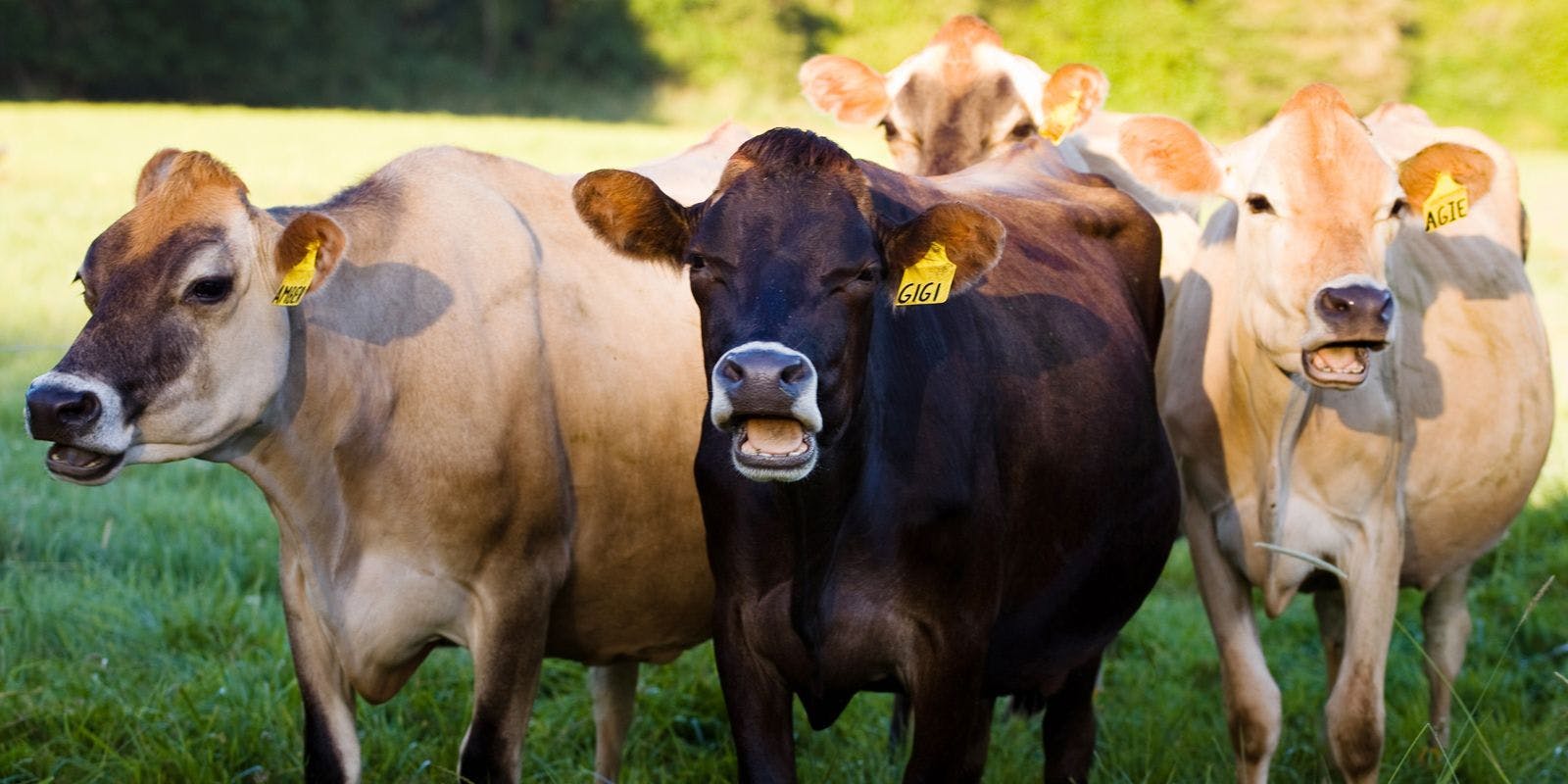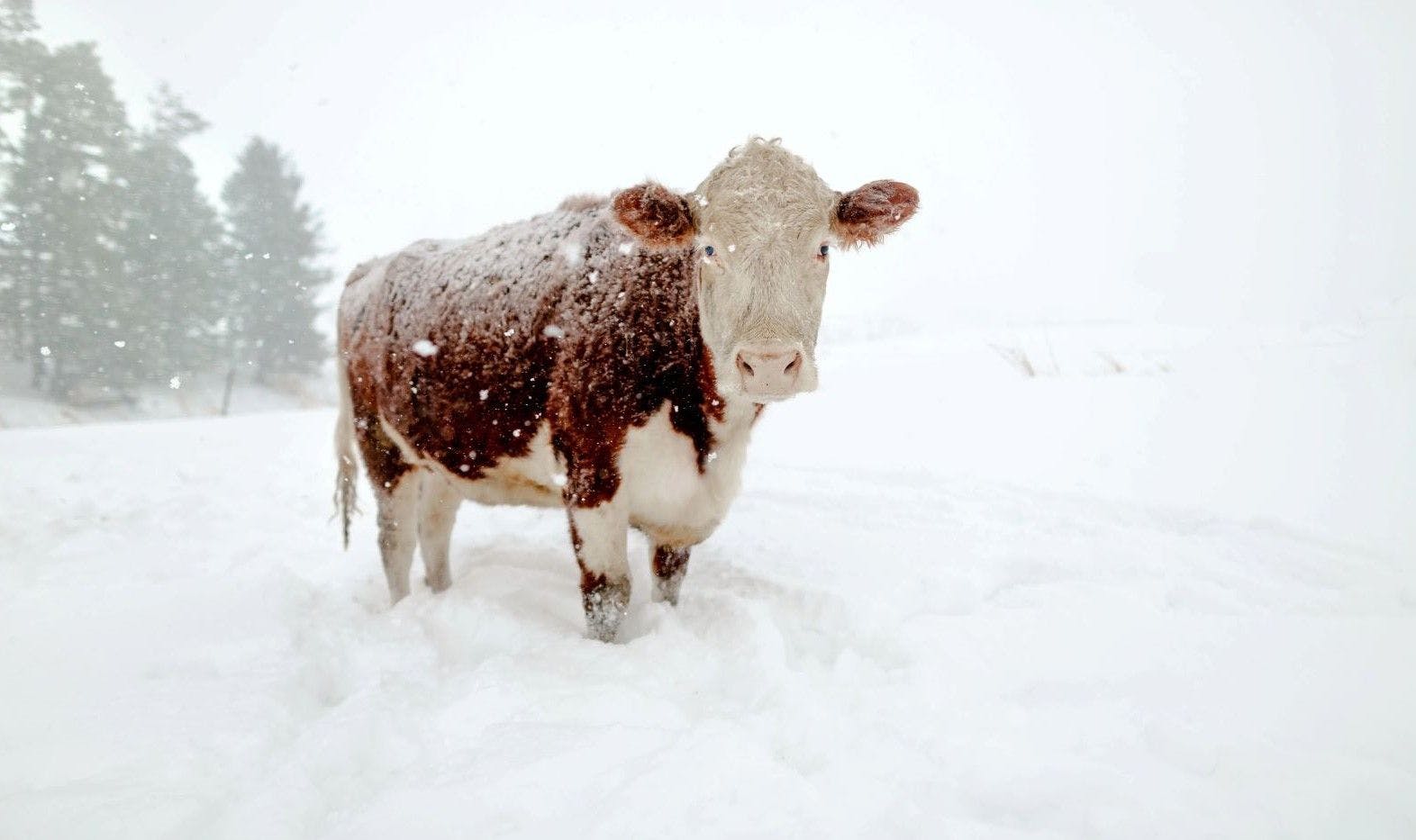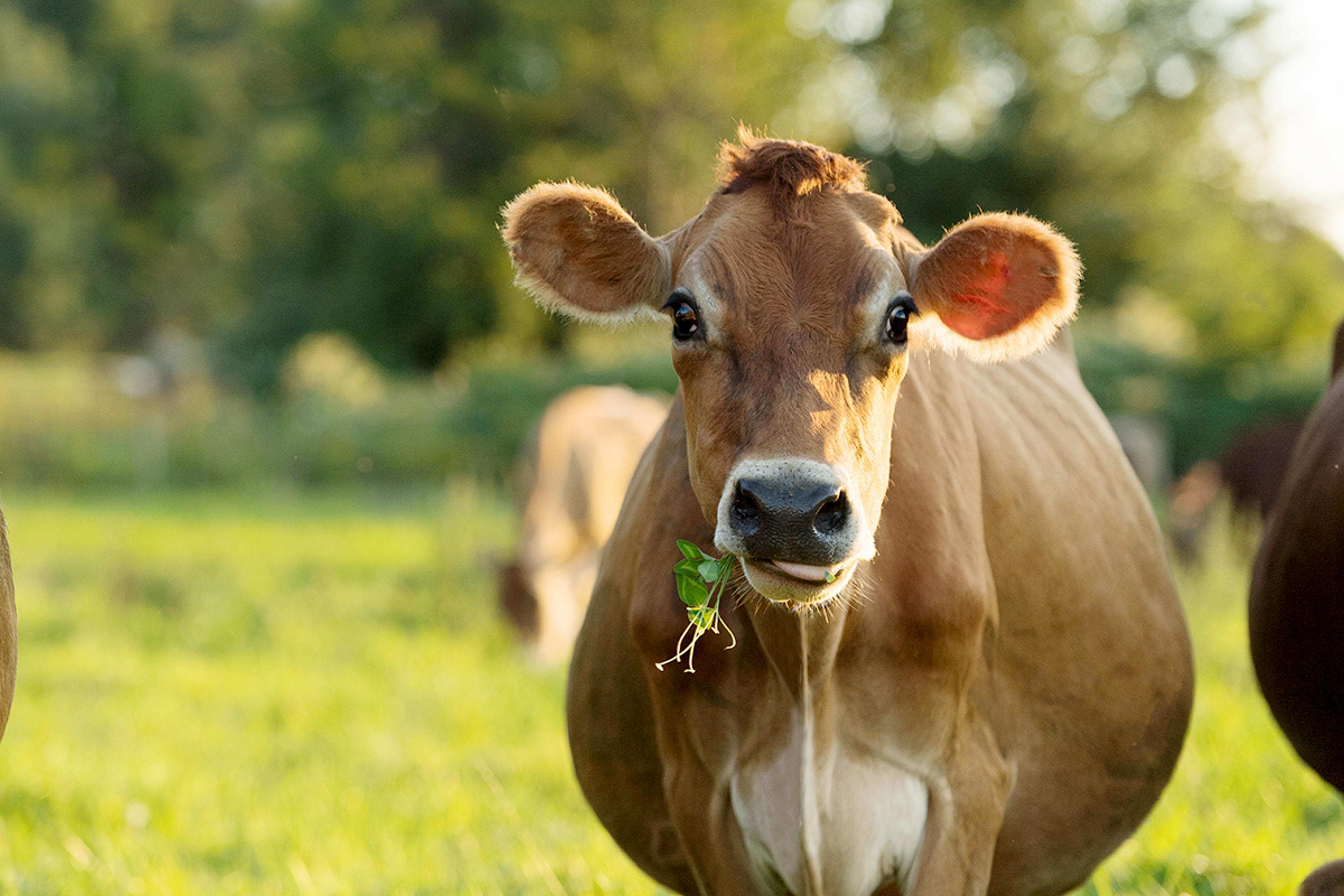
Farming
What Does Certified Organic Mean for Animal Care?
Caring for animals is central to what Organic Valley farmers do. From ensuring they get all the fresh pasture they want and need to monitoring animal health with one-on-one attention, our family farms work hand in hand with nature to create a good life for all animals on the farm. And we believe that when we work with nature, our milk and everything we make is wholesome for you, your family, and the planet.
Since all Organic Valley farmers are U.S. Department of Agriculture Certified Organic, all 1,700 of our farms are routinely inspected to uphold federal standards required by the certification. And what does organic certification mean when it comes to animal care? More than you might think!
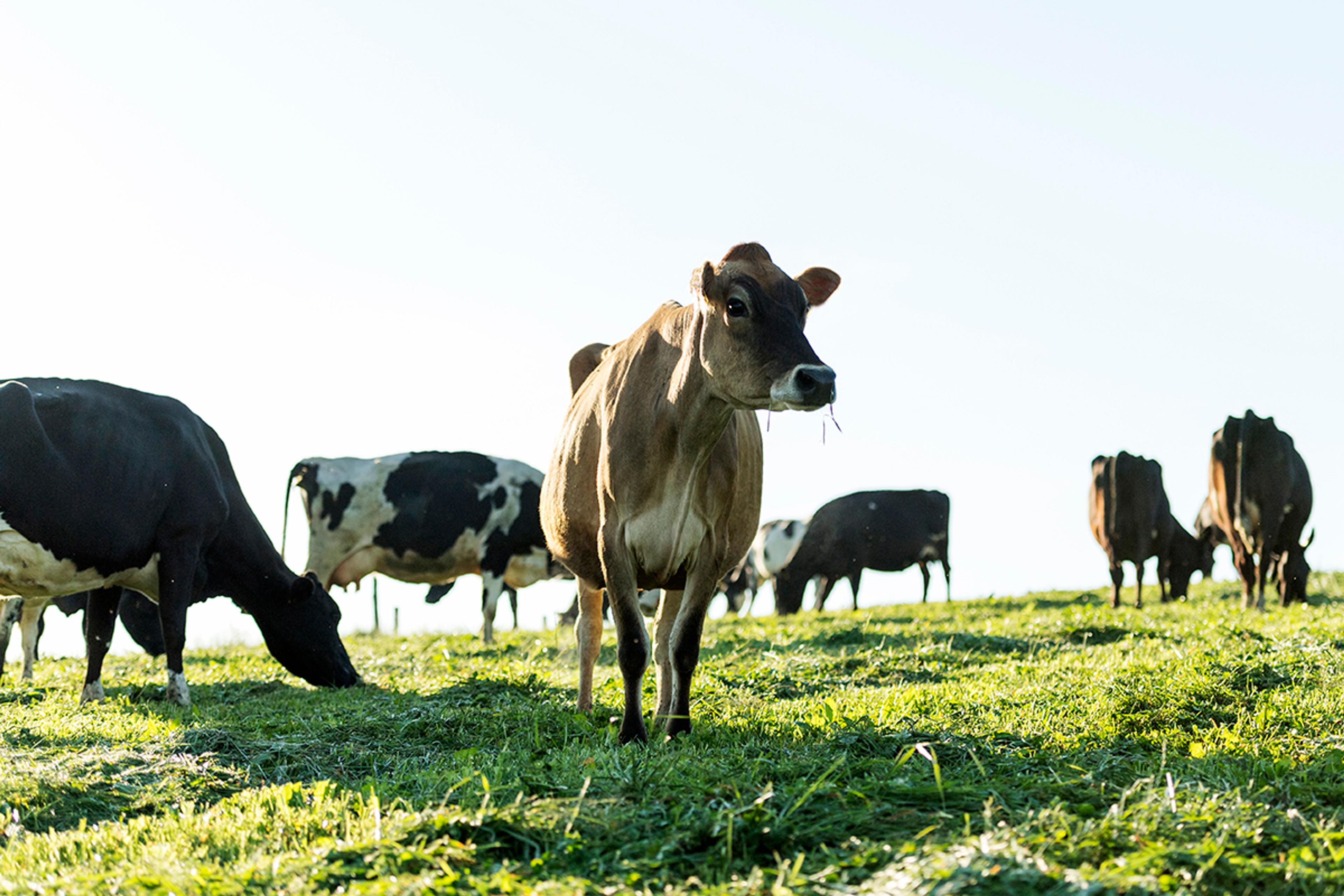
Stoltzfoos family farm in Pennsylvania
Organic Standards Require Pasture
As USDA Organic standards developed, making sure animals are able to express their natural behaviors and have their health and wellness requirements met became an essential part of the certification. On Organic Valley farms, that means plenty of time enjoying fresh air and pasture.
The National Organic Program (NOP) requires that cows get 120 days of grazing during the grazing season. Farms throughout the U.S. without organic certification can decide whether or not to put their animals outside, but certified organic farms must meet the 120-day requirement. Our farms report that our cows spend more than half a year on pasture, on average (depending on the region and the season).
When cows are inside, our farmers keep the cows warm, dry, happy, and safe. Many of our farms even do some pretty quirky things to keep their cows happy, like special brushes for the best cow back scratcher ever.
Natural Behaviors and No Cages
When it comes to chickens and turkeys on organic farms, our farmers once again work with nature to allow the birds to express their natural behaviors, like scratching and hunting and pecking for tasty treats. Organic Valley farmers give chickens more space outdoors and plenty of time to enjoy nature. When the weather turns less-than-pleasant, the birds are cared for inside by our experienced farmers.
We also make sure that what our animals eat leads to healthy food for you and your family. The eggs you serve your family come from hens that get not only organic food and access to grassy pastures, but also carefully managed portions of flax seeds and even marigolds. This unique approach helps give eggs the rich, dark yellow yolks millions have come to know and love.
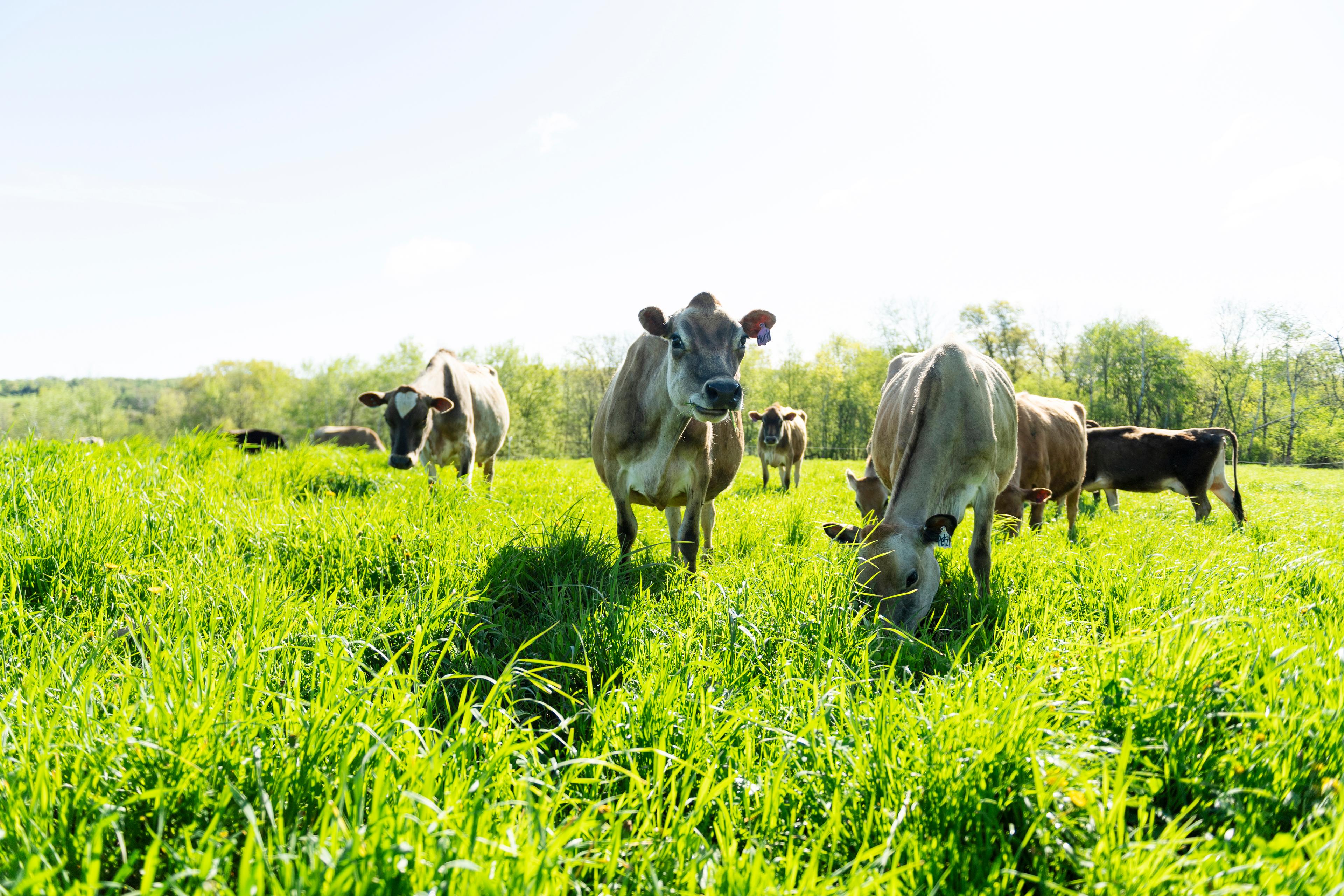
Beard family farm in Iowa
But we don't stop there. We believe that the organic program's spirit means that there should be even more protection for animals like chickens. We fought for the Organic Livestock and Poultry Practices Rule (OLPP) to be integrated into USDA Organic certification, and thousands of citizens like you contacted your representatives in support. Our cooperative decided to go ahead and make the rule a reality on our farms because, well, it is the right thing to do for the animals and you.
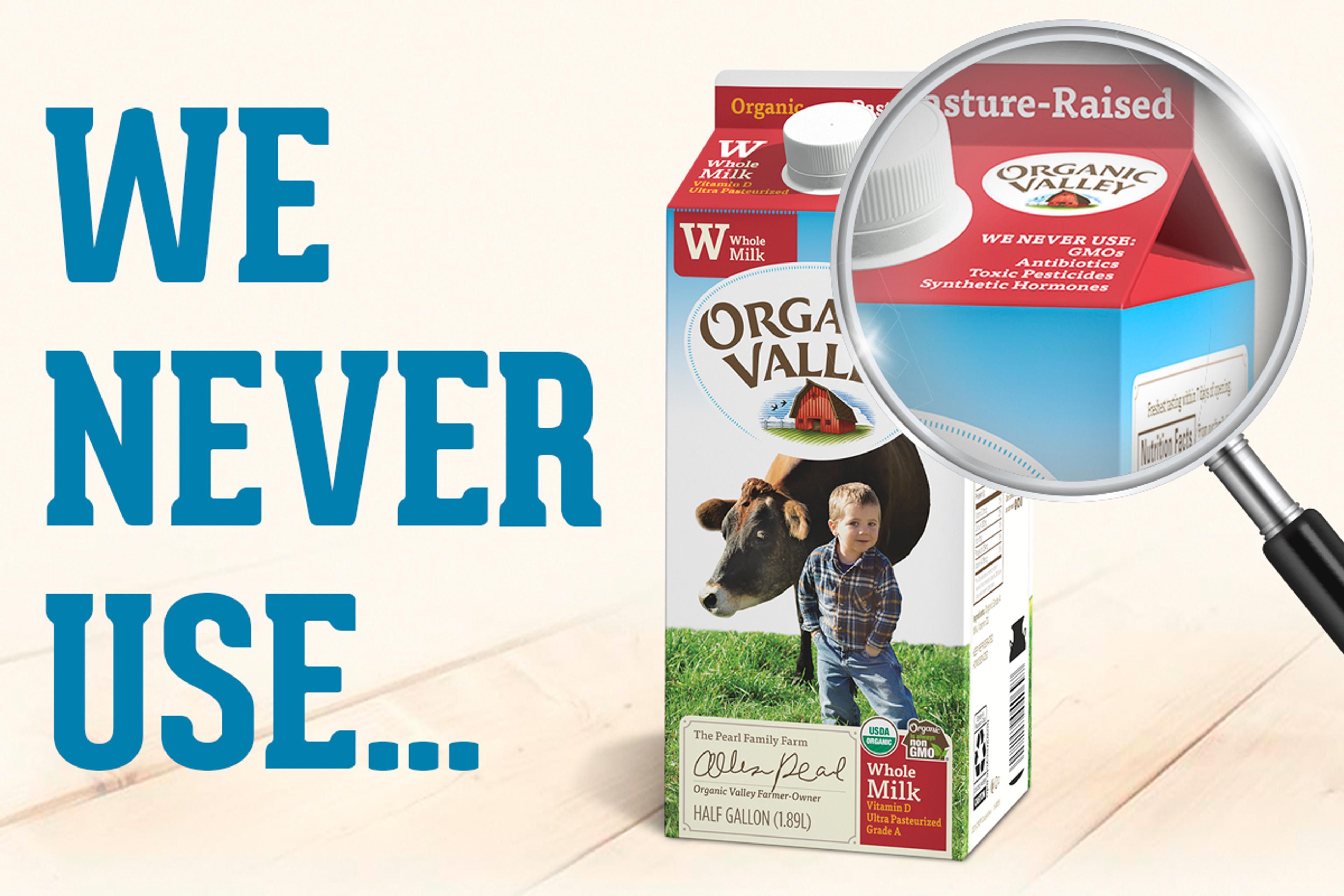
The Organic ‘No’ List
No synthetic pesticides. No synthetic herbicides. No antibiotics. No added hormones. No GMOs.
That is the organic promise. Everything fed to animals on certified organic farms must be free from synthetic pesticides, herbicides, hormones, and GMOs. Our cows and chickens are all organic, and we are proud to continue our 30-plus year history of upholding organic standards and growing the organic industry.
No Added Hormones
Organic farmers are not allowed to give artificial hormones to any certified organic livestock animal on the farm. Organic Valley animals are never given hormones to increase their milk or meat production. We work with nature; we don't push animals beyond their natural limits.
Most people have heard of recombinant bovine growth hormone (rBGH), but rBGHisn't the only hormone used in nonorganic farming. In fact, there are several synthetic hormones allowed in conventional farming methods. Even USDA Organic allows the use of oxytocin if, and only if, it is helpful after a cow has given birth. Organic Valley farmers, however, do not use oxytocin or any other added hormone for any reason.
And as it turns out, there are big benefits to working with nature. We choose to embrace the natural systems innate to the spirit of organic standards, and that means avoiding added hormones, synthetic pesticides, and GMOs.
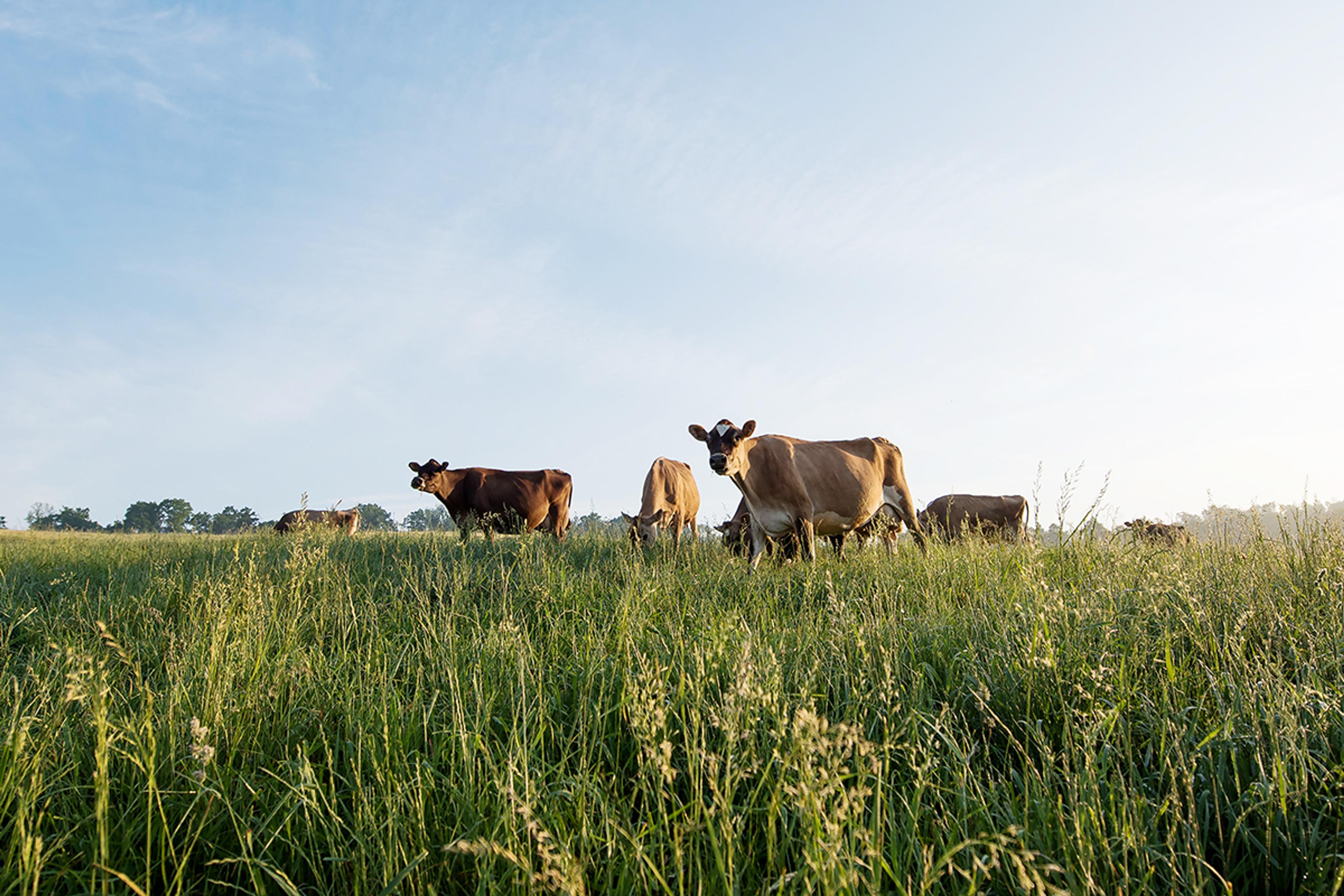
Kline family farm in Ohio
No Artificial Pesticides or GMOs
The organic promise also means that our farmers never expose animals or feed on the farm to artificial pesticides, and animals are never fed GMO grains (or GMO anything, for that matter).
GMOs and synthetic pesticides and herbicides frequently go hand in hand. Many nonorganic crops like field corn and soy are genetically engineered to resist certain pests or tolerate pesticides and herbicides that are sprayed on them while they’re growing. GMO corn or soy that may have been sprayed with pesticides and herbicides is fed to nonorganic livestock or processed into other products for humans, like tortilla chips, vegetable oil, and corn syrup.
However, GMOs are strictly prohibited on certified organic farms. Since neither artificial pesticides nor GMOs are allowed on organic farms, it means the cows that make the milk that goes on your family table live a life free from GMOs and artificial pesticides.
Living a Natural Life Outside
We believe that the organic promise of animal care is this: Animals on organic farms live healthy lives expressing their natural behaviors while being well cared for by dedicated organic farmers.
Since Organic Valley farms have a small average size, animals are given even more one-on-one attention and TLC. All of that dedication, caring, and hard work adds up to happy, healthy animals and great-tasting, high-quality milk and eggs for you and your family.
Joshua Fairfield is the cooperative public relations manager at Organic Valley, but in his spare time dreams of creating an organic farm built from the ground up to increase biodiversity and protect life. He enjoys good books read by firelight, trying new (and old) gardening techniques and writing about the natural, beautiful systems on organic farms.
Related Articles
Tags:
- animal care














